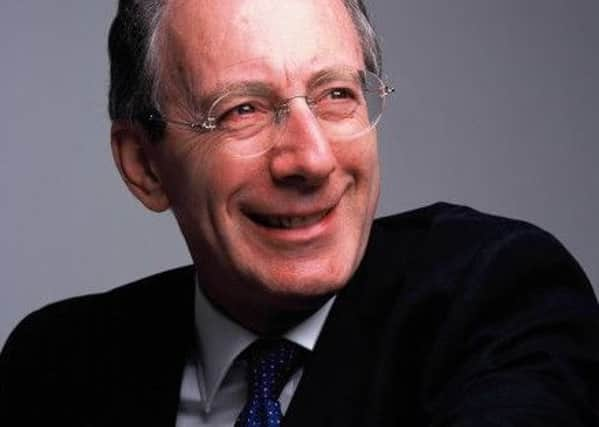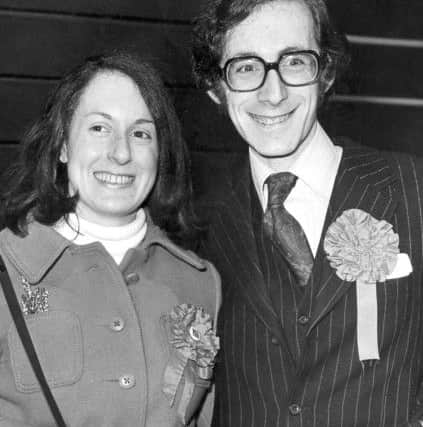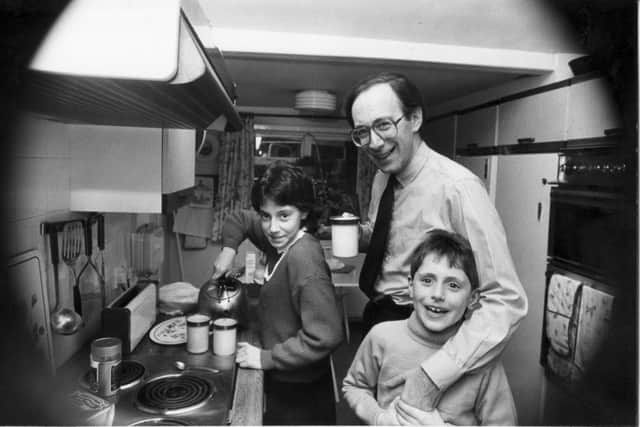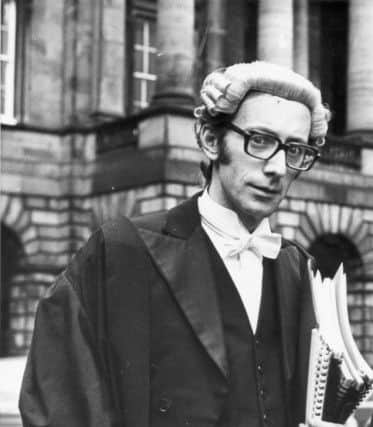Sir Malcolm Rifkind recalls his Edinburgh upbringing


In his recently-published memoirs, former foreign secretary Sir Malcolm Rifkind recalls his Edinburgh upbringing and education and the start of his political career.
He was born in a nursing home in Morningside in 1946 and grew up in Marchmont, where he lived with his parents and older brother Arnold in a first-floor flat in Warrender Park Terrace, overlooking the Meadows. His earliest memories include being in the Sick Kids hospital to have his tonsils out at the age of two and trapping his finger in the doors of Woolworths in Lothian Road.
Advertisement
Hide AdAdvertisement
Hide AdThe young Malcolm accompanied his parents to synagogue every Saturday morning until his mid-teens. He went to a nursery at Tollcross and James Gillespie’s Primary then on to George Watson’s College at the age of seven.


He says the school was usually relaxed about dress code, but there were occasional “spasms of enthusiasm about getting us back into correct uniform”.
And he recalls being sent home to change his socks because they had a stripe when they should have been plain.
“My schooldays were inauspicious as regards both academic achievement and sporting prowess. Watson’s is a school with an excellent and deserved reputation, but I was not stimulated by most of the lessons and I did not discover real enjoyment in studying until I was at university.”
Advertisement
Hide AdAdvertisement
Hide AdHe says his academic performance was “middling at best” and his interest in sport was limited to table tennis. But he did enjoy amateur dramatics and public speaking.


He played Cardinal Wolsey in a school production of A Man for All Seasons – “the nearest I have ever got to becoming prime minister”.
And he took part in his first debate when he was 13. It was about the benefits of television.
“You might have thought it would be relatively easy to persuade a schoolboy audience to support television. However, we lost.”
Advertisement
Hide AdAdvertisement
Hide AdThe experience did not deter him, however, and his taste for public speaking helped him decide he wanted to become a barrister. He left school before the sixth form and went to Edinburgh University to study law.


“Nowadays, with my dismal grades I wouldn’t even have been considered by the Lay Faculty. But this was 1963 and they had more places than applicants.”
On his first day as student, he joined Liberal Club, but later switched.
“I found them seriously dull, though lovely people. Their parties were not nearly as good as those of the Tories.”
Advertisement
Hide AdAdvertisement
Hide AdHis student days also saw him hitchhike to London with a friend for the state funeral of Sir Winston Churchill, camping overnight for a good vantage point; and appear on University Challenge hosted by Bamber Gascoigne.


“My time at university coincided with what has since become known as the Swinging Sixties. I must confess I was hardly aware of it at the time.
“Edinburgh in 1963 was not London; Princes Street was not Carnaby Street.”
He recalls law students were expected to attend lectures in jacket and tie.
Advertisement
Hide AdAdvertisement
Hide Ad“Politicians are often asked whether they ever took drugs while they were students. I can say, in all honesty, that I never did. But that might be because I was never given the opportunity.”
After three years of law, he went on to study for a post-graduate degree in political development and spent 18 months as a lecturer in Rhodesia.
He returned to Edinburgh and embarked on a legal apprenticeship, but was also keen to pursue a career in politics which he believed would be “exciting and stimulating”.


He had earlier been a leading member of Edinburgh Pentlands Young Conservatives and in the 1966 general election they had been responsible for campaigning in Gorgie ward.
Advertisement
Hide AdAdvertisement
Hide AdIn August 1969, at 23, he became the youngest Conservative parliamentary candidate in Scotland when he stood for Edinburgh Central.
But the election the following year came sooner than he wanted, soon after he had married Edith, whom he had met in Rhodesia, and they had to cancel their two-week honeymoon in Florence and Rome.
“Poor Edith had to spend what should have been our honeymoon pounding the streets of central Edinburgh.”
He took over an empty shop in Lothian Road as his headquarters and chose purple rather than blue as his campaign colours. The national result saw Tory Ted Heath elected prime minister; in Edinburgh Central, Labour’s majority was cut from 4015 to 1561.
Advertisement
Hide AdAdvertisement
Hide AdSoon afterwards he was elected to Edinburgh Town Council in a by-election in Newington, joining the growing Tory group.
But he was more interested in a parliamentary career and his performance in Central meant he was well placed to fight a more promising seat next time.
He was one of the final two considered to take on Liberal David Steel in the Borders, but was eventually selected for Pentlands. Rifkind was elected to the Commons in February 1974 with an increased majority of 4602, but this was cut to 1257 at the second election that year, thanks mainly to an SNP surge.
Labour were back in power now and the Tories were soon looking for a new leader.
Advertisement
Hide AdAdvertisement
Hide AdThe new Pentlands MP voted for Margaret Thatcher rather than Viscount Whitelaw or Geoffrey Howe, but he admits “they were closer to me politically”. He says: “I had been impressed by her fierce pugnacious style. She had a vitality that was not apparent in Whitelaw and the other male candidates.”
Days after Mrs Thatcher took over, he was appointed a frontbench spokesman on Scottish affairs – aged 28 and after less than a year as MP. He later resigned over the party’s decision to vote against the Labour government’s Devolution Bill. And he voted Yes in the 1979 referendum which would have created a Scottish Assembly.
But it did not damage his prospects in the Tories. After Mrs Thatcher became prime minister, he became a junior Scottish Office minister. He would go on to serve as a junior Foreign Office minister, Scottish secretary, defence secretary and finally foreign secretary, one of only a handful of ministers with unbroken service throughout 18 years of Tory rule until 1997.